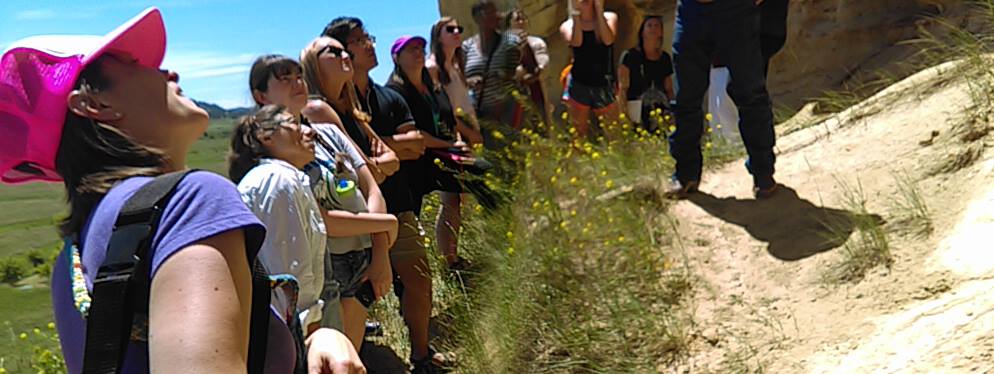What lessons can be drawn from learning about the Holocaust and Native American experience? That is what 35 educators considered during a week-long seminar that began on June 10 in Billings, Montana.
Worlds Apart But Not Strangers is the title of the program, sponsored by The Olga Lengyel Institute for Holocaust Studies and Human Rights (TOLI). Now in its eighth year, the seminar has trained over 150 teachers, including many Native Americans, who apply their experience in the classroom under the state-mandated Indian Education for All law.
“The seminar takes a unique approach in facilitating discussions amongst teachers, connecting Holocaust literature and pedagogy with the Native American plight, specifically that of the Crow and Northern Cheyenne tribes,” says Wendy Warren, Satellite Program Director for TOLI throughout the US and a native of Billings.
“In collaboration with local synagogue leaders, Crow and Northern Cheyenne historians, teachers get to experience first-hand Native American perspectives of the events leading up to the Battle of Little Bighorn,” says Warren one of the co-facilitators of the program along with Brenda Johnston and Marcia Billedeaux Beaumont.
The seminar provided a once-in-a-lifetime opportunity for educators to reflect and process what they’re experiencing through writing, a vital component of TOLI’s educational philosophy. The roles of the perpetrator, target, bystander and ally are tools teachers then use to shed light on contemporary injustices, exposing students to a human rights-based education format.
Educators spent many intensive hours reflecting on intolerances and injustices, both old and new. They mapped out new strategies to bring these issues to light in the classroom amidst visits from prominent speakers from Montana’s Jewish and Native peoples communities.
Warren describes the Billings seminar as an emotionally and mentally taxing journey. “We all know the most transformative learning happens when your brain and your heart are engaged.”
The professional development continues after the seminars, when teachers can access mini-grants of amounts up to $1,000 to support projects that bring Holocaust and social justice education to wider audiences. TOLI’s impact on teachers is palpable well after they have returned to the classroom.
The Olga Lengyel Institute is a New York-based organization, named after a survivor of Auschwitz who dedicated her legacy to education, The mission of the Olga Lengyel Institute is to educate students in the United States, Europe and other parts of the world about human rights and social justice through the lens of the Holocaust and other genocides so that such atrocities may never again take place.
To accomplish its mission, TOLI provides professional development seminars for educators in the US and abroad that link the lessons of the Holocaust and other genocides to current world events, thereby working with teachers to promote a human rights and social justice agenda in their classrooms
